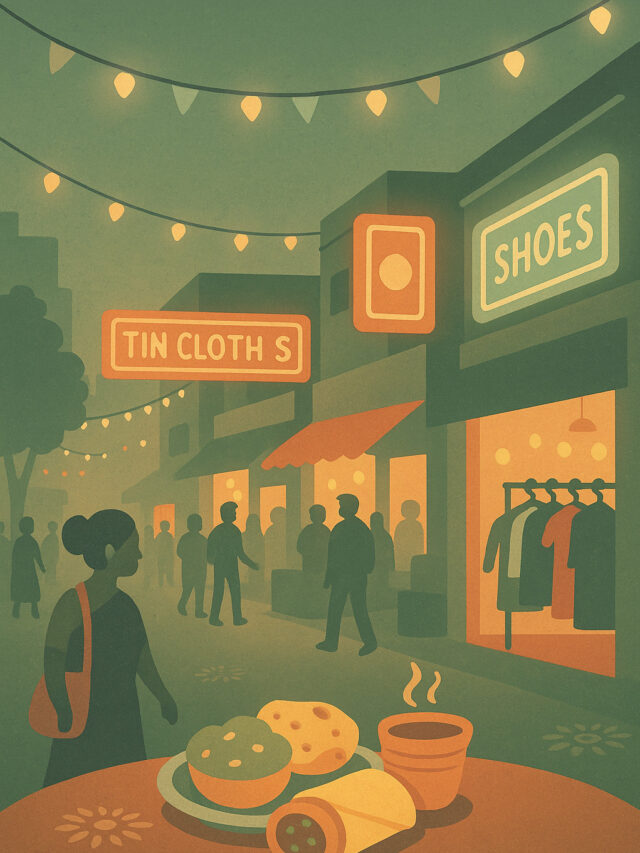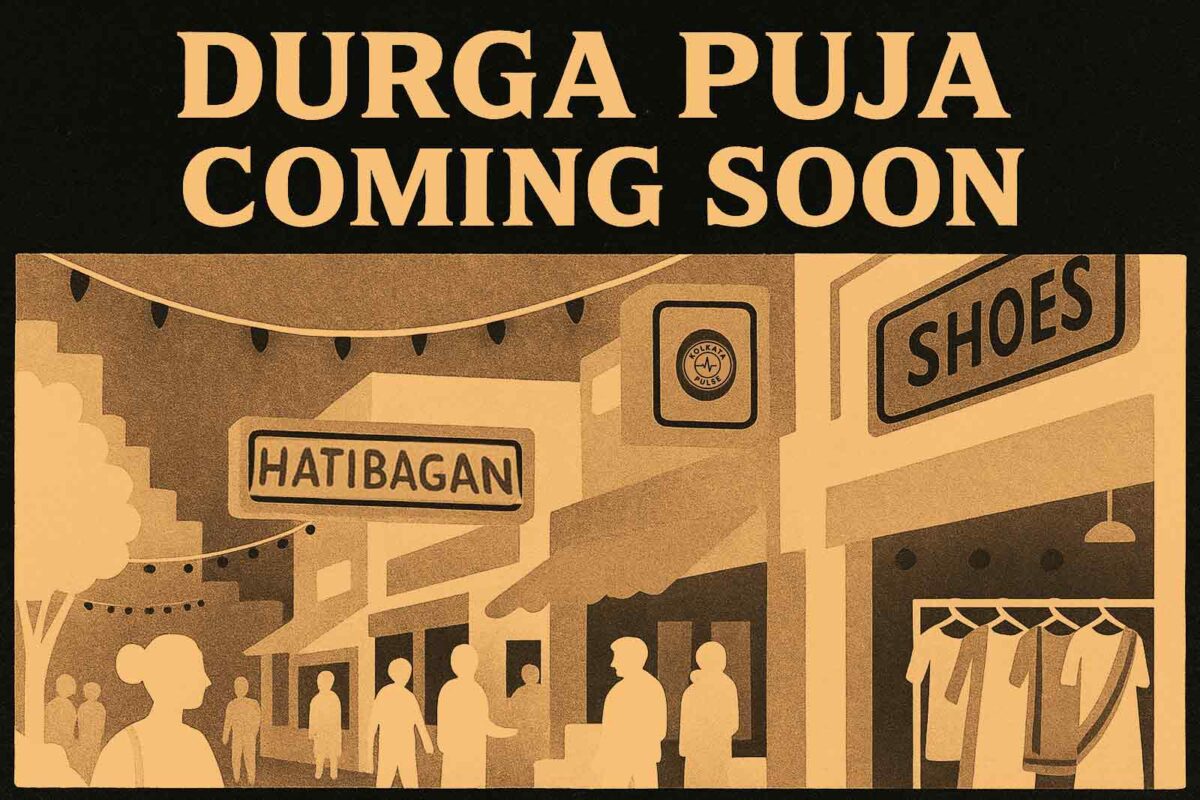 Hatibagan — Fading or a Second Wind?
Hatibagan — Fading or a Second Wind?
Hatibagan Durga Puja Shopping 2025: 7 Strong Reasons It Will Rebound
Hatibagan Durga Puja shopping feels quieter today, but it isn’t over. Discover 7 strong reasons it can rebound—heritage, makers, safer lanes, curated edits—and how shoppers really buy before Puja. Routes, tips, and Web Story inside. A hopeful guide to what’s changed, what hasn’t, and how North Kolkata’s favourite bazaar can feel like itself again.
Why Hatibagan Durga Puja shopping still matters
Hatibagan Durga Puja shopping is more than a checklist. It’s the flavour of puchkas and rolls, the smell of notun jama (new clothes), and the memory of families moving as one through neon lanes. The crowds feel thinner today, but the sentiment hasn’t gone away. Even now, many of us “go see” before we buy.
“Even for Puja shopping, people compare prices on their phones before entering. We aim to get clients every day, but the festive craze is late this year.”
— Hatibagan garment seller
Hatibagan Durga Puja shopping: what changed (and what didn’t)
- Shoppers changed: more price-checking on phones, comfort with home delivery, and curated mall/online “edits”.
- Weather & comfort: rain, heat, and crowd anxiety can push last-minute buyers toward alternatives.
- What didn’t: the cultural clock still ticks—after Mahalaya, lists come out and markets can rebound fast.
“We buy through the year—sara bochhor-ei kichhu na kichhu kinte thaki—but the first rustle of Puja clothes is still special.”
— North Kolkata resident
Not only shopping: food, craft, and living memory
These lanes mix errands with treats—puchka, egg rolls, chowmein, chai in clay cups. The bazaar is also a bridge to makers: handloom weavers, kumor families shaping idols, light artists, hawkers, and sweetmakers who keep the festival’s texture alive.
7 reasons Hatibagan Durga Puja shopping can rebound
- Heritage pull: Kolkata’s Durga Puja is a UNESCO-listed living heritage. Street markets sit inside that story and still attract families before Puja.
- Community rhythm: After Mahalaya, lists reappear; the final weekend often sees sharp spikes in visits.
- Experience edge: Touching fabric, trying sizes, eating together—offline joy that e-commerce can’t replace.
- Safer lanes: Basic upgrades—clear walking paths, lighting, dry awnings, visible wiring fixes—build confidence.
- Curated “Puja Edit”: Cluster saree + blouse + accessories; add size tags, QR prices, and UPI everywhere.
- Wayfinding & rest: Simple signs to Metro exits and food pockets keep families longer (and happier).
- Maker stories: Show who wove the Jamdani, who cast the dokra—trust grows, so does spend. A British Council study estimates Puja’s creative industries at ₹32,377 crore.
Pair these with consistent hygiene, fair pricing, and polite crowd management—and Hatibagan’s lanes can feel like themselves again.
“I browse online but still come to touch the fabric and eat a roll with friends. If it’s easy to walk and buy, I’ll stay longer—and spend.”
— Gen-Z shopper at Hatibagan
Next: See our full planner — Durga Puja Shopping in Kolkata 2025: Markets, Timings, Essentials & Bijoya Gifts
FAQs
Why was Hatibagan Durga Puja shopping once the first stop?
Because Hatibagan concentrated variety—family sets, value finds, and last-mile tailoring—plus food stops that turned errands into an evening out.
Has the shopping peak moved online?
People price-check and sometimes buy online, but street markets still spike with the cultural calendar—especially after Mahalaya and the last weekend before Puja.
How can Hatibagan compete with e-commerce?
Fix basics (safety, walking comfort), curate seasonal edits, use QR pricing/UPI, tell maker stories, and keep simple wayfinding to Metro exits.
What counts as “heritage” versus “trend” here?
Heritage is the living practice—handloom weaves, idol-making, community lights, Bijoya sweets—things that outlast seasons. Trends are styles and sales cycles that change year to year.
Further reading
References
- Indian Express — “Streetwise Kolkata: Hatibagan — Where Nawab Siraj-ud-Daulah’s war elephants and single-screen cinemas once dominated.” Read
- Sinha, S. & Sarkar, S. (2022/23). “Revitalization of Catchment Area of an Existing Commercial Hub: A Case Application at Hatibagan–Shyambazar, Kolkata, West Bengal.” Read
- UNESCO — “Durga Puja in Kolkata” (Intangible Cultural Heritage). Listing
- British Council — “Mapping the Creative Economy around Durga Puja” (₹32,377 crore, 2.58% of GSDP). Overview | PDF
Read next: [Kolkata Life] | [Food] | [Heritage]
Stay Connected
New here? Start with our welcome page, or explore more about the city on Kolkata — Wikipedia.
Stay connected. Comment, share your story, or simply listen. Add us to your home screen and enable notifications so you never miss a story.

